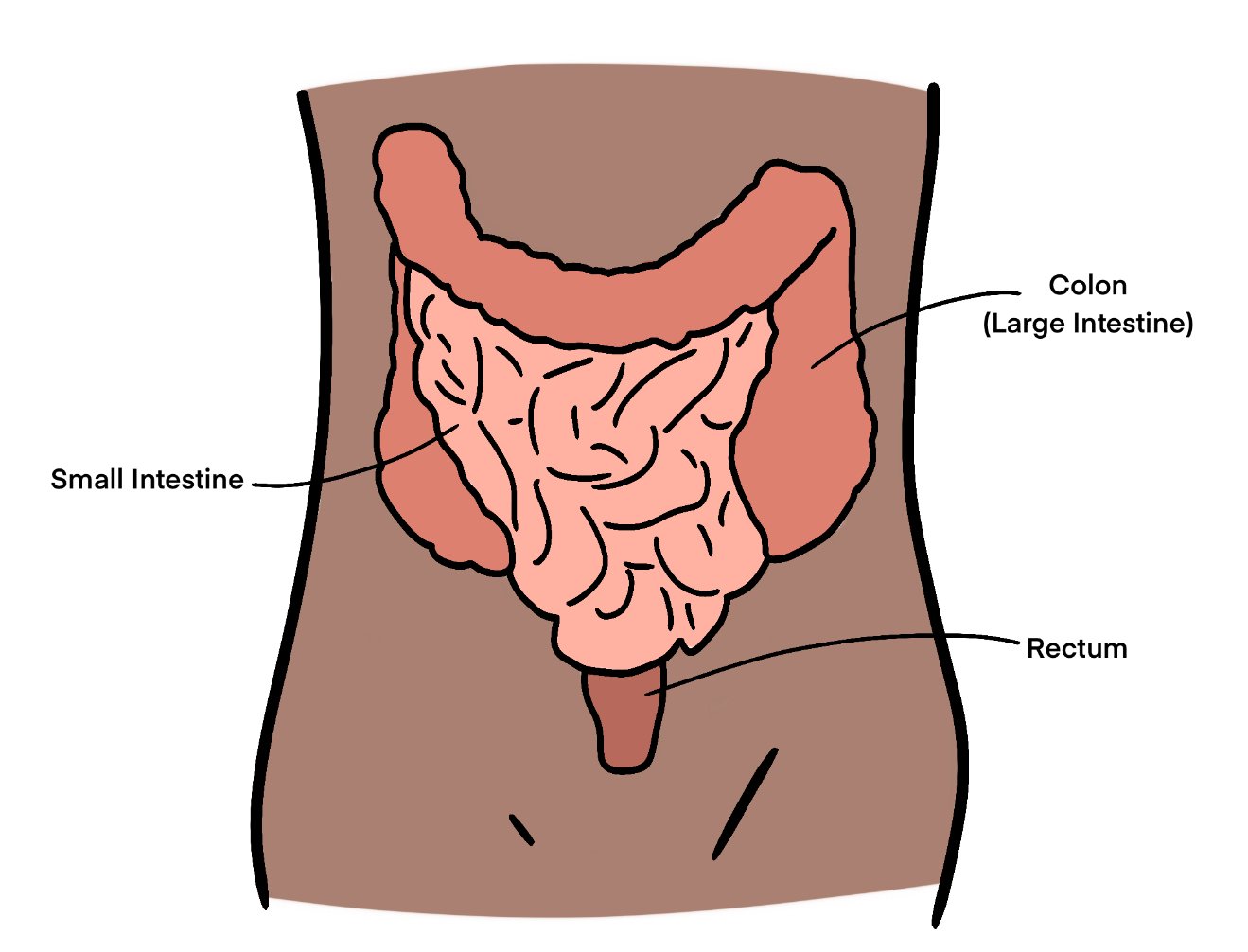What is Colorectal Cancer?
To begin to understand exactly what colorectal cancer is, it’s important to know that the term “colorectal” cancer is used in reference to two different types of cancer: colon cancer and rectal cancer. These two cancer types are grouped together under the name “colorectal” because they have many features in common. [1]
In your body, your large intestines are the part of your gastrointestinal tract (GI tract) that come after your small intestines. Your large intestines are made up of your colon, which absorbs leftover water and salt from your remaining food, and the rectum, where food waste matter is stored until it the waste (stool) is passed. Your large intestines are particularly prone to developing polyps, which are small growths on the inner lining of your colon or rectum. Over the years, these polyps can develop into cancer, and some types of polyps are more prone to developing into cancer than others. [1]
There are three main types of polyps: 1) adenomatous polyps (adenomas); 2) hyperplastic and inflammatory polyps, and 3) sessile serrated polyps (SSPs) and traditional serrated adenomas (TSAs). Adenomas are considered to be pre-cancerous as they may turn into cancer over time. Hyperplastic and inflammatory polyps are more common and normally not pre-cancerous. Lastly, SSPs and TSAs are similar to adenomas in that they have a higher chance of turning into colorectal cancer. [1]
Staging colorectal cancer depends on how deeply it has grown into the walls of the colon or rectum, and if it has spread into nearby blood vessels, lymph vessels, and lymph nodes. Colorectal cancer begins in the innermost layer of colon or rectum, and then proceeds to grow outwards through the other layers. Once the cancer cells are within the intestine wall, they can metastasize, traveling to nearby lymph nodes or other, more distant parts of the body. [1]
References:
1. What is colorectal cancer?: How does colorectal cancer start? https://www.cancer.org/cancer/colon-rectal-cancer/about/what-is-colorectal-cancer.html (accessed Jan 17, 2022).

